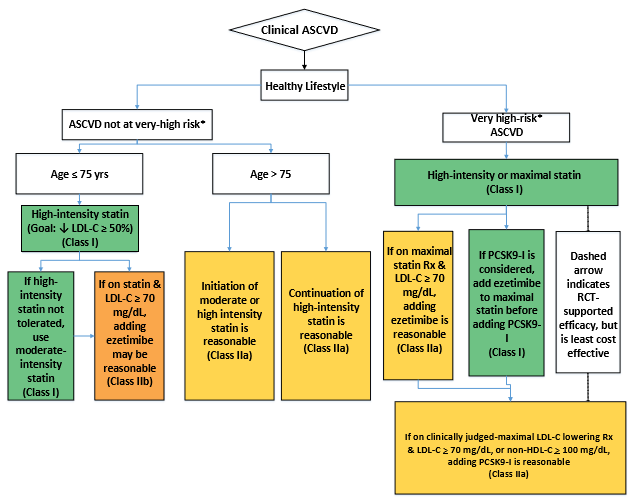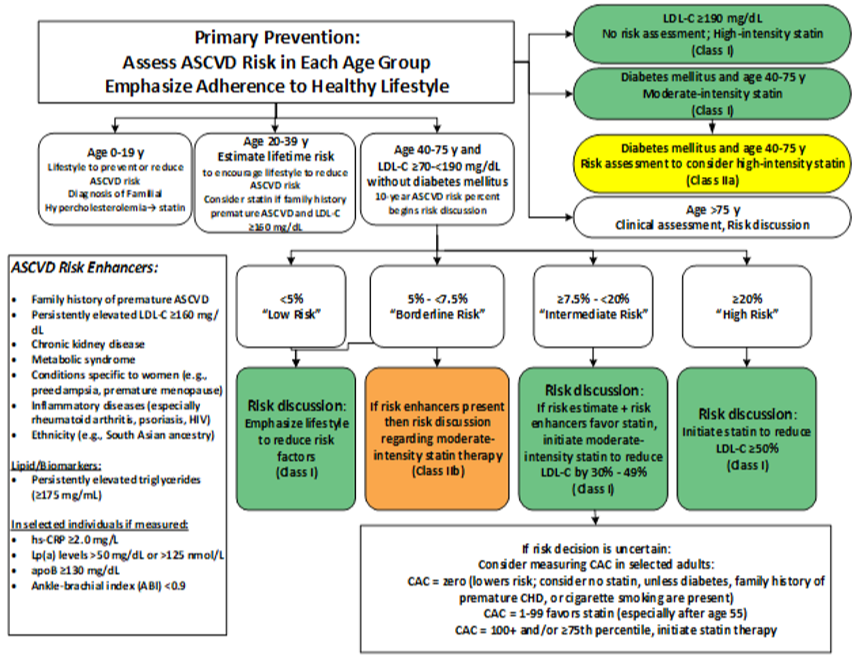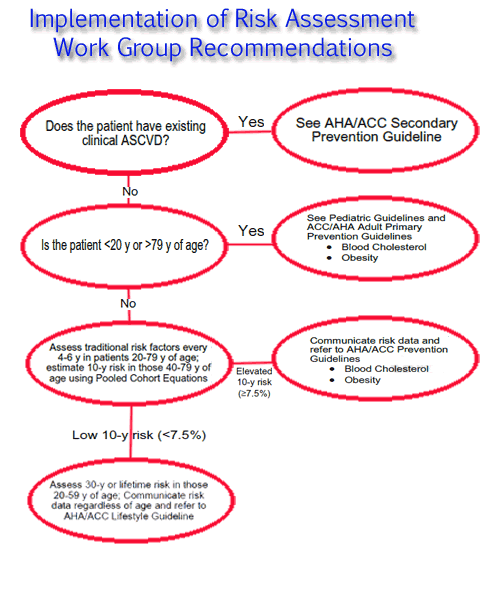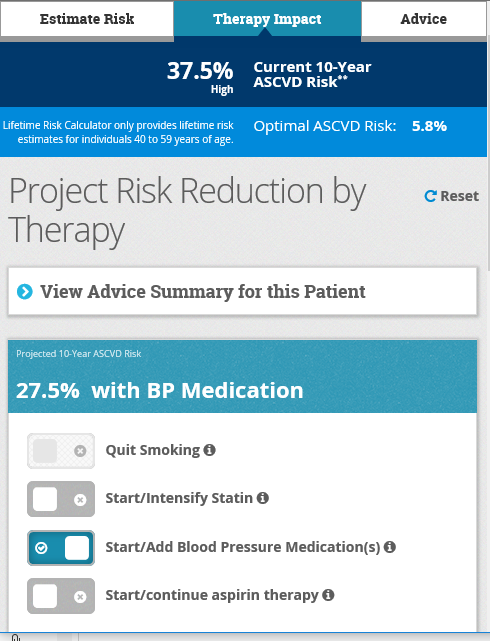10 year ascvd calc
Determines 10-year risk of heart disease or stroke and provides statin. The 10-year risk estimate for optimal risk factors is represented by the following specific risk factor numbers for an individual of the.
Ascvd Risk Calculator
This calculator helps predict the 10-year risk of the following hard ASCVD events.
. If an ASCVD value was not able to be calculated usually due. Our ASCVD Risk Algorithm is a step-wise approach for all adult patients. It helps predict the risk over 10 years of heart attack stroke or death from.
Download the Patient Brochure Now. Learn More About an ASCVD Treatment Option the Importance of Lowering LDL-C. Atherosclerotic cardiovascular disease ASCVD is the leading cause of morbidity and mortality worldwide.
Ad HCPs See How You Can Help Your ASCVD Patients With High LDL-C Despite Therapy. Primary prevention No diabetes 40-75 years of age and LDL-C 70-189 mgdL. 10-Year ASCVD Risk Calculator with Coronary Artery Calcium.
On the basis of your age alone the USPSTF guidelines suggest you would not benefit from starting aspirin for heart disease and stroke risk. Use the app to. Recommendations for statin therapy include those 40-75 years of age with LDL-C 70 mgdl who have diabetes or a 10-year risk of ASCVD 75.
This calculator is for use only in adult patients without known ASCVD and LDL. Consider high-intensity statin when 75 10-y ASCVD risk using the Pooled Cohort Equations. Calculate your 10-year risk of heart disease or stroke using the ASCVD algorithm published in 2013 ACCAHA Guideline on the Assessment of Cardiovascular Risk.
How do you calculate 10-year ASCVD risk. Our ASCVD Risk Algorithm is a step-wise approach for all adult patients including those with known ASCVD. First occurrence of nonfatal myocardial.
Ad For People w Heart Disease on a Statin Needing Help Lowering Bad Cholesterol. Download the Patient Brochure Now. The updated Pooled Cohort Risk equations from Yadlowski et al 2018 These equations predict 10-year risk.
10-year risk of heart disease or stroke. This function implements the Pooled Cohort Risk equations from Goff et al 2013. ASCVD Atherosclerotic Cardiovascular Disease Risk Algorithm including Known ASCVD from AHAACC.
After considering the 10-year. The ASCVD risk calculator is an estimator of the risk of individuals who could potentially develop complications of atherosclerotic cardiovascular disease over a 10 year period. The updated ASCVD Risk Estimator Plus uses recent science and user feedback to help a clinician and patient build a customized risk lowering plan by estimating and monitoring.
Estimate a patients initial 10-year ASCVD risk using the pooled cohort equation. See More Information About ASCVD. First occurrence of nonfatal myocardial infarction.
See More Information About ASCVD. Ad For People w Heart Disease on a Statin Needing Help Lowering Bad Cholesterol. The 10-year ASCVD risk expressed as a decimal value eg.
0075 75 10-year risk. Fatal or nonfatal stroke. 1 Statins have been the mainstay therapy in the primary prevention of.
Receive an individualized evidence-based risk-guided intervention approach for managing. This calculator is intended for men with no prior history of cardiovascular disease see next bullet. This peer-reviewed online calculator uses the Pooled Cohort Equations to estimate the 10-year primary risk of ASCVD atherosclerotic cardiovascular disease among.

Ascvd Risk Estimator

Ascvd Risk Estimator

Atp Iv Lifetime Ascvd Risk Pooled Cohort Equations Globalrph

Pin On Health
Ascvd Risk Estimator
Ascvd Risk Calculator

Ascvd Risk Estimator
Ascvd Risk Calculator
Ascvd Risk Estimator Plus Apps On Google Play

Ascvd 10 Year Visualization Graphs Clincalc Com

Pin On Health

Ascvd Risk Estimator

New Web Based 10 Year Ascvd Risk Calculator Pooled Cohort Equations Clincalc Com

Ascvd Risk Estimator

Ascvd Risk Estimator Plus American College Of Cardiology

Ascvd Risk Estimator Risk Health Fitness Gut Health

Cardiovascular Risk Estimation By The Ascvd Risk Estimator Application In A University Hospital International Journal Of Cardiovascular Sciences